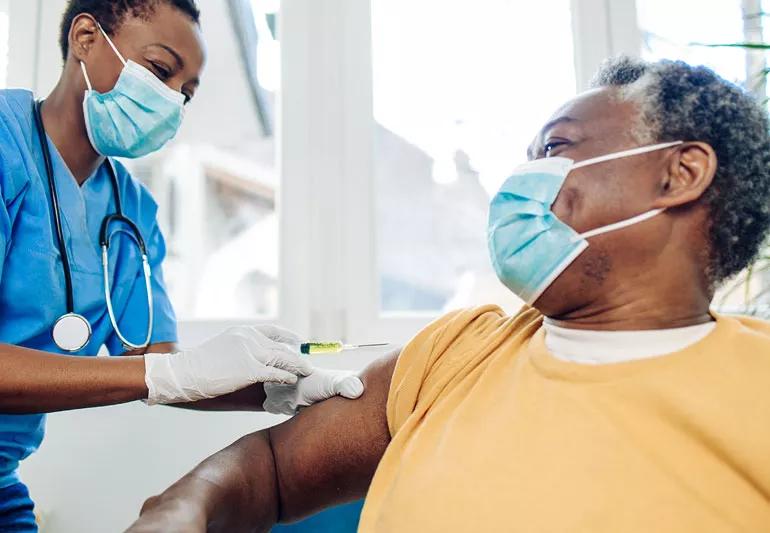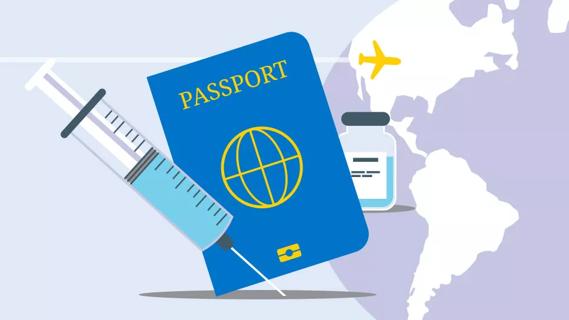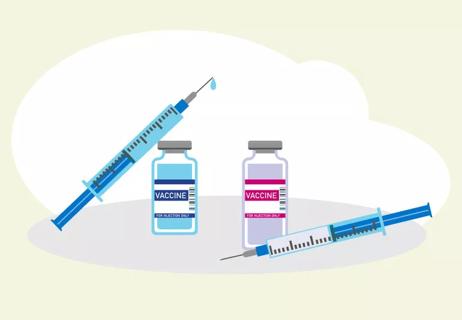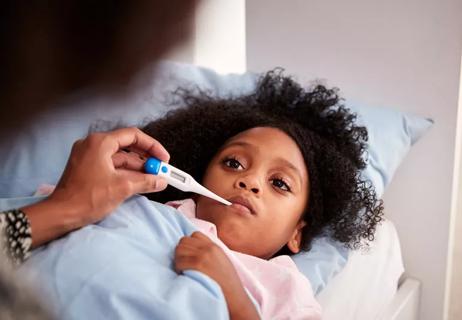Advertisement
Adults 60 or older, pregnant people and babies can get protected against the respiratory virus

Respiratory syncytial virus, known as RSV, is a lung infection that’s highly contagious.
Advertisement
Cleveland Clinic is a non-profit academic medical center. Advertising on our site helps support our mission. We do not endorse non-Cleveland Clinic products or services. Policy
“RSV is the poster child for what’s called paramyxoviruses, which is a family of viruses that can cause mild infections,” says pediatric infectious disease specialist Frank Esper, MD. “But in certain individuals, it can cause more significant breathing problems and pneumonia.”
And while you may have thought that RSV is only prevalent in infants and children, anyone can get RSV.
So, is there a vaccine for RSV for adults?
Yes. While we’ve had vaccines for other viruses like COVID-19, the flu and chickenpox, the U.S. Food and Drug Administration (FDA) recently approved an RSV vaccine for adults. The same RSV vaccine can also be used for pregnant people, while an immunization that protects against RSV for babies is also available.
Dr. Esper explains what we know about the vaccines and who’s eligible to receive them.
Adults 60 years or older can receive the RSV vaccine as a single shot.
A trial of the vaccine showed it was 83% effective in preventing a lower respiratory tract disease, which includes having at least two symptoms — for example, a worsening cough, wheezing, shortness of breath — for a day. Additionally, the vaccine was 94% effective at preventing severe disease that could lead to needing supplemental oxygen or a ventilator.
Dr. Esper says it’s hard to determine how long the protection will last with a vaccine, but he does see the potential for an RSV vaccine to become part of our annual vaccination, like the flu vaccination.
Advertisement
“I don’t see an RSV vaccine giving lifelong immunity like the measles vaccine or the chickenpox vaccine does,” he continues. “I think it’s likely going to be one of those situations where if you want to have continued protection, you’re going to need to get boosters.”
Not all respiratory viruses are created equal, notes Dr. Esper.
“It’s like saying you have a vaccine that prevents against bear attacks. But will it also protect against shark attacks? The answer is ‘no.’ A bear and a shark are completely different animals,” he explains. “The same thing goes for RSV and the flu. They both cause pneumonia and respiratory disease, but they’re very different beasts.”
The flu vaccine is developed to target a specific strain of influenza, while the RSV vaccine is crafted to deal particularly with RSV.
“You’re not going to get one vaccine that cures all,” states Dr. Esper. “You’re going to need a COVID-19 vaccine. You’re going to need a flu vaccine. And eventually, you’re going to need an RSV vaccine.”
There’s been a lot of new information regarding RSV vaccines and who can get it. The RSV vaccine for adults is approved for people 60 years old or older.
Additionally, people who are pregnant can receive an RSV vaccine during week 32 and week 36 of pregnancy — and the vaccine will protect infants through the first six months of their life.
And babies up to 8 months old can get an RSV immunization (not a vaccine, but a dose of RSV protective antibodies) as they enter their first RSV season. A second dose may be recommended for toddlers before they enter their second RSV season if they have lung, heart or immune problems.
In addition to receiving the RSV vaccine if you qualify, there are things you can do to prevent the spread of this highly contagious virus.
These steps may seem familiar, as they’re also recommended in preventing the spread of COVID-19 and the flu:
“This virus loves to spread onto hands. And then, hands can move from person to person and place to place through contact,” says Dr. Esper. “So, washing your hands is one of the best things you could do.”
Advertisement
Learn more about our editorial process.
Advertisement

Most routine vaccines are safe for people living with multiple sclerosis — but be sure to talk with your care team about your needs

Updated vaccinations are recommended to better protect against the evolving virus

Redness, swelling, itching and rash can happen when your body’s immune system reacts to the vaccine injection

The answer varies from person to person and vaccine to vaccine

Plan early — getting the right vaccines can help you stay healthy on your travels

Getting routine vaccinations together can save you time and may be more effective

It comes down to a wheeze, a fever and long-term effects

Embarrassing or shaming often makes people defensive, which makes change more unlikely

Focus on your body’s metabolic set point by eating healthy foods, making exercise a part of your routine and reducing stress

PFAS chemicals may make life easier — but they aren’t always so easy on the human body

While there’s little risk in trying this hair care treatment, there isn’t much science to back up the claims